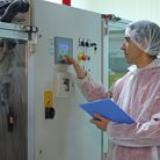
Predviđanje učinka promjena i upravljanje njime
Predviđanje učinka promjena i upravljanje njime jedna je od šest glavnih aktivnosti u programu rada Eurofounda za razdoblje 2021. – 2024. Eurofound će pružati dokaze o strukturnim promjenama koje utječu na gospodarstvo i tržišta rada EU-a, a koje su uglavnom posljedica digitalizacije i prelaska na ugljično neutralno gospodarstvo , ali i krize uzrokovane bolešću COVID-19. Svrha je istraživanja pomoći oblikovateljima politika u predviđanju tih promjena te pripremanju europskih tržišta rada i radnih mjesta na te promjene.
Eurofound će od 2021. pružati informacije o učinku tih megatrendova na životne i radne uvjete u EU-u. Istraživanje će u području digitalizacije biti usmjereno na učinak na uvjete zapošljavanja i radne uvjete te na tržište rada. Područja u kojima će se provoditi istraživanje uključivat će socijalni dijalog i njegovu ulogu u oblikovanju strukturnih promjena, regulatorne okvire, socijalnu zaštitu i umjetnu inteligenciju. Uz oslanjanje na prethodna istraživanja o radu putem platforme, razdoblje 2021. – 2024. pružit će priliku za posvećivanje pozornosti izradi pregleda i procjene učinkovitosti inicijativa politike u rješavanju problema koji su utvrđeni u radu putem platforme.
Eurofound će istraživanjem socioekonomskih učinaka nastojati pružiti potporu i prelasku EU-a na ugljično neutralno gospodarstvo, uključujući kružno gospodarstvo te provedbu instrumenta EU-a za oporavak Next Generation EU. Učinci koji će se ispitivati uključuju promjene u zaposlenosti i transformaciju radnih mjesta i radnih uvjeta te distribucijski učinak klimatskih politika. Dio tog rada temeljit će se na rezultatima pilot-projekta o budućnosti proizvodnje („Future of manufacturing”, FOME) koji je proveo Eurofound.
Kao nastavak tog rada u razdoblju 2021. – 2024., Eurofound će surađivati s raznim međunarodnim organizacijama i agencijama EU-a kao što je, kad je riječ o području socijalnih učinaka klimatskih politika, Europska agencija za okoliš (EEA). Osim toga, pojačat će se postojeća suradnja s drugim dionicima u području istraživanja o digitalizaciji, kao što su Zajednički istraživački centar (JRC), Agencija za temeljna prava (FRA) i Europska agencija za sigurnost i zdravlje na radu (EU-OSHA). Predviđa se i nastavak partnerstva s Međunarodnom organizacijom rada (ILO) u pogledu promjena u svijetu rada.
Gospodarstvo i tržišta rada EU-a obilježava učinak megatrendova, posebno digitalizacije i prelaska na ugljično neutralno gospodarstvo. Važno je istražiti na koji točno način te tranzicije funkcioniraju, što se mijenja i kako će to utjecati na poduzeća, ali i na radnu snagu i društvo.
Irene Mandl, voditeljica Jedinice za zapošljavanje































